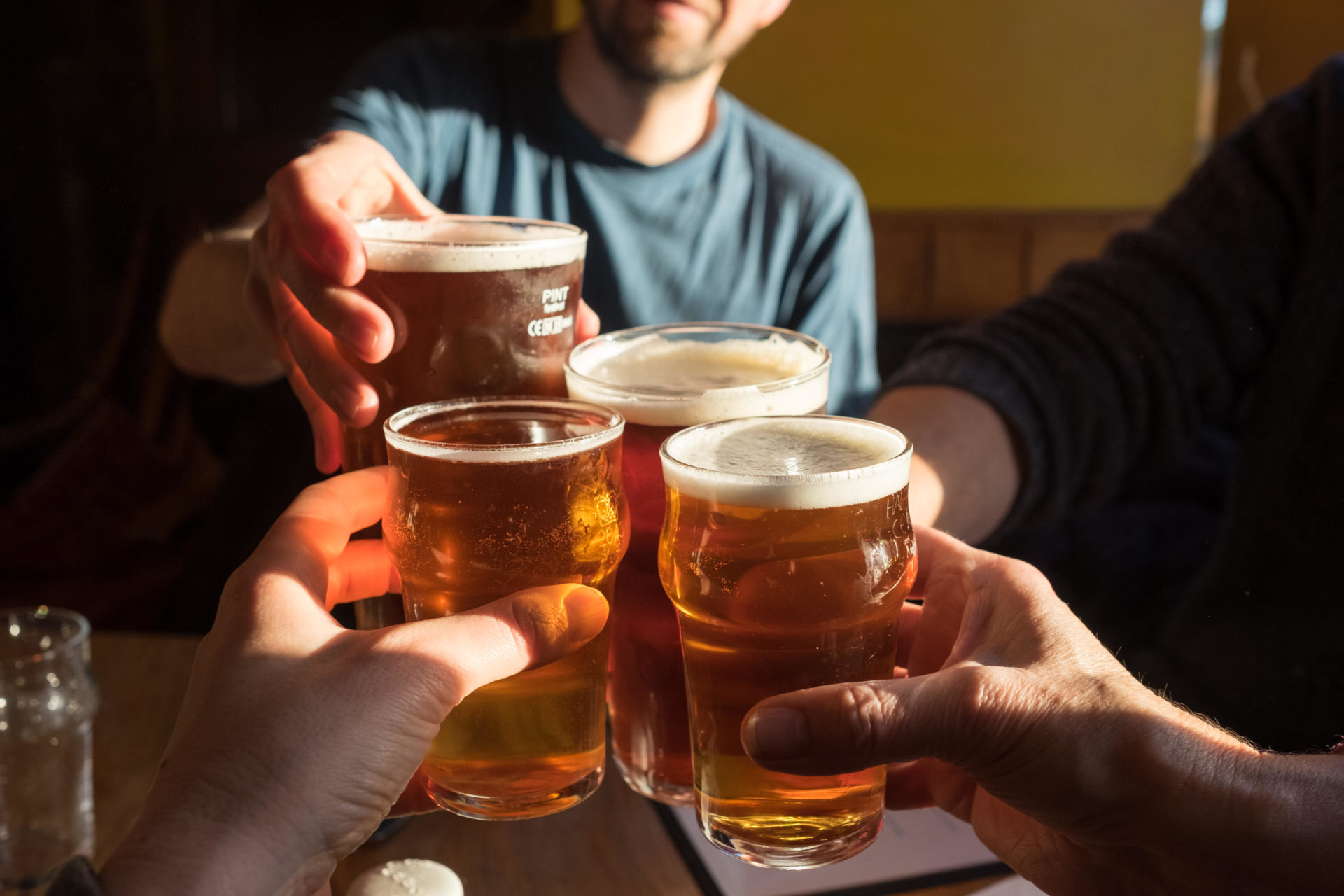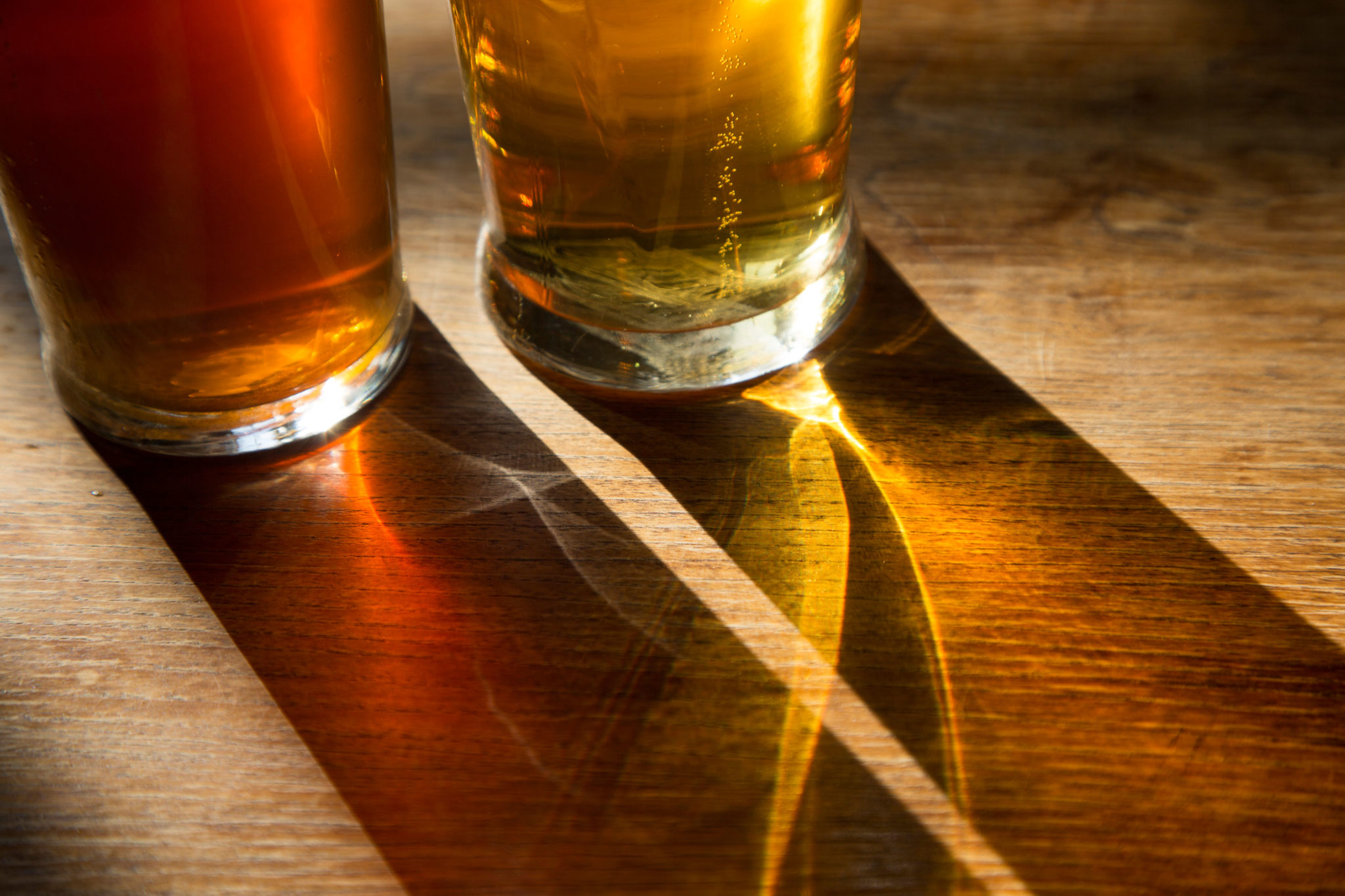Artificial intelligence is now so advanced it is inventing tasty new pints, Luke O’Neill has said.
Use of the technology is growing and several beer companies decided to see how good it might be at inventing new recipes.
On The Pat Kenny Show, Professor O’Neill said many of the results have been positive so far.
“Becks is 150 years old; to celebrate their anniversary, they said we’re going to have a robot designed beers and they used AI to make a beer,” he explained.
“St Austell’s, a UK brewer, again they’ve made a beer; it’s called ‘Hand Brewed by Robots’.”
 A party of four clink glasses. Picture by: Alamy.com.
A party of four clink glasses. Picture by: Alamy.com. Professor O’Neill added that designing a new beer is “quite complicated” because so many chemicals are required to brew it.
“There’s sweetness, acidity, the hop level and various other components that they will measure,” he said.
“One good example is in the University of Leuven, they analysed 250 beers in great detail and then began modelling what a new beer would look like.
“They added in glycerol - which is a natural chemical or lactic acid - and then modelled that.
“Lo and behold, they got a beer out of it that the consumers liked; the brewer himself said he would never have thought of adding those ingredients.”
 Pints of beer in the sunlight on a pub table. Picture by: Alamy.com.
Pints of beer in the sunlight on a pub table. Picture by: Alamy.com. There is also the bane of every barman’s working life to consider - the foam in a pint.
Seemingly, AI can now be used to reduce that as well.
“The more you ferment, the less protein there is - it gets damaged,” Professor O’Neill said.
“So, less fermentation means less foam - with one exception; the Trappist Beers in Belgium.
“They are famous for repeat fermentation; they noticed there’s a specific protein in those beers, it’s called LTP1.
“That improves fermentation and you get better foams.
“So, suddenly they’ve realised there’s other ways to make better foam.”
Main image: Split of Luke O'Neill and pints. Pictures by: Newstalk and PA.









